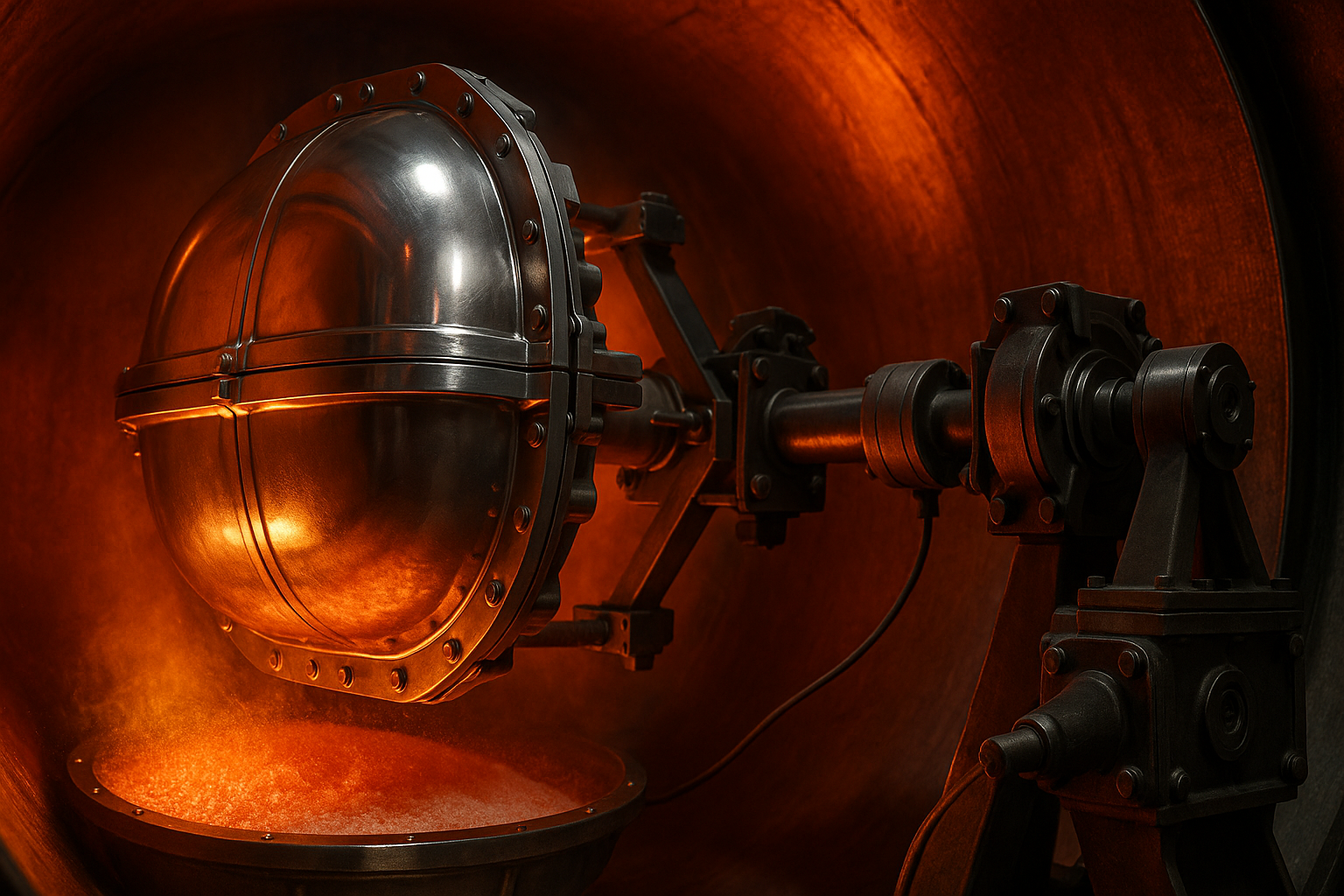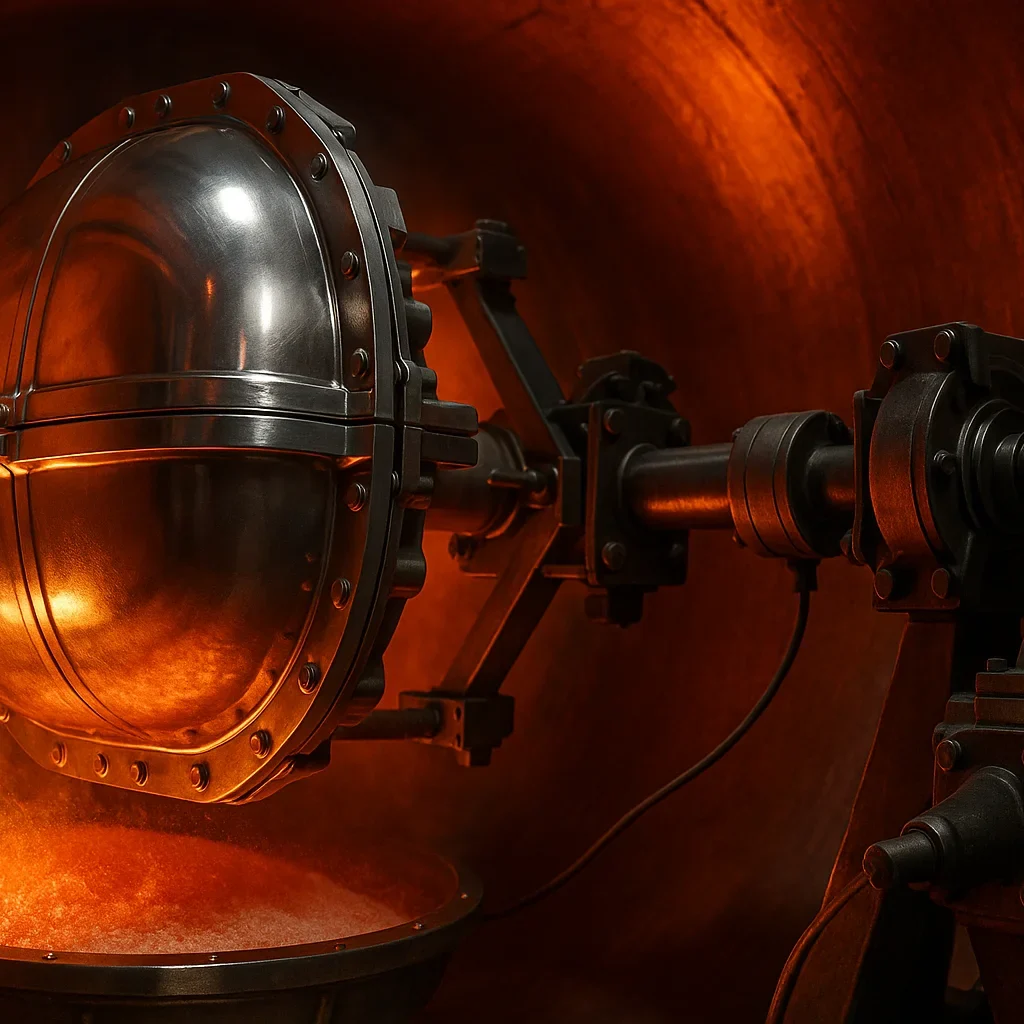

Rotational Roto Molding
NEXAMS Leading Rotational Roto Molding and Hollow Plastic Manufacturing Solutions
NEXAMS excels in rotational roto molding, also known as rotomolding or rotational moulding, a specialized manufacturing process for producing hollow plastic parts with seamless precision. In building our reputation, we partner with trusted Vendors, dependable Supplier relationships, responsible Suppliers, and ethical Manufacturers to ensure high-quality outcomes and genuine Support for both local and nearby industries. Unlike injection molding or blow molding, rotational molding uses biaxial rotation to distribute molten plastic resin within a mold, resulting in durable, lightweight, and complex-shaped components that meet both performance and ethical standards.
Our expertise spans across tank making, hollow parts, recreational products, and industrial components. Whether you’re a plastics company or an OEM seeking low tooling costs and flexible design options, NEXAMS offers comprehensive rotational roto molding solutions, working alongside Vendors, Supplier contacts, trusted Suppliers, and skilled Manufacturers to provide consistent Support that benefits local and nearby communities.
Benefits of Rotational Roto Molding Technology
- Seamless and durable hollow parts with uniform wall thickness, achieved through partnerships with experienced Vendors and Supplier networks in local and nearby regions.
- Cost-effective for low to medium production runs, guided by ethical Suppliers and Manufacturers who provide reliable Support.
- Ideal for complex shapes, multi-layer structures, and foam-filled components, delivered with the help of skilled Vendors and Supplier chains.
- Lower tooling investment compared to blow molding and vacuum forming, with input from knowledgeable Suppliers and Manufacturers across local and nearby facilities.
- Environmentally friendly with minimal plastic resin waste, supported by eco-conscious Vendors and Supplier collaborations.
- Compatible with various materials like Polyethylene, Nylon, and PVC, sourced through dependable Suppliers and innovative Manufacturers.
- Large product size capability, from small containers to massive storage tanks, achieved with Vendors and Supplier backing.
- Efficient tank making processes for water, fuel, and chemical applications, supported by Suppliers and Manufacturers offering committed Support in local and nearby markets.
Industrial Application and Use Cases
- Tank Making: Large water tanks, fuel tanks, and chemical storage solutions crafted through collaboration with Vendors, Supplier links, Suppliers, and Manufacturers providing ongoing Support.
- Automotive Industry: Air ducts, interior panels, and fuel tanks made with the help of expert Vendors and Supplier resources within local and nearby hubs.
- Industrial Equipment: Housings, bins, and robust hollow parts for heavy-duty applications, produced by trusted Suppliers and Manufacturers offering sustained Support.
- Recreational Products: Kayaks, playground equipment, coolers, and outdoor furniture created through ethical Vendors and Supplier engagements.
- Medical and Safety Gear: Durable enclosures and ergonomic product designs made possible by skilled Suppliers and Manufacturers.
- Agricultural Components: Containers, piping systems, and machinery covers delivered by reliable Vendors and Supplier groups in local markets.
- Marine Equipment: Buoys, kayaks, and floating platforms supported by experienced Suppliers and Manufacturers.
- Consumer Goods: Toys, custom storage solutions, and home utility items, backed by Vendors, Supplier networks, and Suppliers with a focus on Support for nearby communities.
Materials Used in Rotational Roto Molding
- Polyethylene (PE): The most commonly used plastic resin in rotational moulding, sourced from trusted Vendors and Supplier connections.
- Polypropylene (PP): Known for its chemical resistance and rigidity, provided by dependable Suppliers and Manufacturers offering Support to local clients.
- Polyvinyl Chloride (PVC): Used for flexible hollow parts and containers, with input from innovative Vendors and Supplier groups.
- Nylon (PA): High-impact resistance for industrial applications, manufactured by skilled Suppliers and Manufacturers in nearby locations.
- Specialized Foam Fillers: For structural rigidity in tank making and large assemblies, developed with ethical Vendors and Supplier input.
- Color Compounded Resins: Pre-colored powders for custom product aesthetics, delivered by experienced Suppliers and Manufacturers offering design Support.
How Costing Works
The cost of rotational roto molding is influenced by part size, mold complexity, plastic resin type, and volume requirements. By working closely with reliable Vendors, transparent Supplier agreements, committed Suppliers, and ethical Manufacturers, NEXAMS ensures fair and efficient pricing. Unlike injection molding that involves high upfront mold costs, rotomolding molds are relatively economical, making it ideal for small to medium production volumes with meaningful Support for local and nearby clients.
Factors affecting costing include mold type, material usage, design complexity, production volume, and post-processing. Through collaboration with Vendors, engaged Supplier channels, quality-driven Suppliers, and innovative Manufacturers, we optimize every stage to achieve both cost efficiency and ethical outcomes.
Alternative Technical Suggestion
- Injection Molding for high-precision, high-volume small parts, offered by specialized Vendors and Supplier partners.
- Blow Molding for thin-walled, hollow containers like bottles and tanks, delivered by skilled Suppliers and Manufacturers with Support for local industries.
- Vacuum Forming for large sheet-formed parts with simple geometries, produced by reliable Vendors and Supplier networks.
- Hybrid Techniques combining rotational roto molding with foam filling for enhanced strength, created through cooperation with Suppliers and Manufacturers.
- CNC Post Machining for tight-tolerance finishing, provided by ethical Vendors and Supplier resources in nearby regions.
- Overmolding Inserts for integrated handles, threads, or metallic reinforcements, managed by expert Suppliers and Manufacturers offering technical Support.
FAQs
Q: What is rotational roto molding and how does it differ from injection molding?
A: Rotational roto molding is a low-pressure process ideal for large hollow parts, unlike injection molding, which is better suited for high-precision, high-volume solid parts. This process benefits from Vendors, Supplier expertise, Suppliers, and Manufacturers offering full Support to local and nearby clients.
Q: What are the advantages of blow molding versus rotational molding?
A: Blow molding is faster and ideal for thin-walled containers, whereas rotational molding excels in producing large, complex, seamless parts, guided by knowledgeable Vendors, Supplier links, and dependable Suppliers and Manufacturers.
Q: Can rotational roto molding create multi-layered hollow parts?
A: Yes, rotational roto molding can incorporate multiple layers, including foam-filled cores, developed in collaboration with Vendors, Supplier networks, Suppliers, and Manufacturers with ongoing Support.
Q: What types of plastic resin are commonly used in rotomolding?
A: Polyethylene, Nylon, Polypropylene, and PVC sourced from ethical Vendors, trusted Supplier channels, skilled Suppliers, and innovative Manufacturers in local and nearby markets.
Q: How cost-effective is rotational molding compared to other molding companies’ methods?
A: For low to medium volumes and large hollow parts, rotational molding is highly cost-effective, supported by cooperative Vendors, Supplier arrangements, experienced Suppliers, and capable Manufacturers.
Q: Is vacuum forming an alternative to rotational roto molding?
A: Vacuum forming is suitable for thin-walled parts with simple shapes, but it lacks the flexibility and durability of rotational roto molding, which benefits from ethical Vendors, Supplier support, and capable Suppliers and Manufacturers.
Q: How does tank making benefit from rotational molding?
A: Tank making via rotomolding produces seamless, leak-proof tanks with uniform wall thickness, thanks to collaboration with Vendors, Supplier teams, Suppliers, and Manufacturers in local and nearby sectors.
Q: What industries commonly use rotational roto molding?
A: Automotive, industrial, agricultural, marine, recreational, and consumer goods industries benefit from the combined efforts of Vendors, Supplier channels, Suppliers, and Manufacturers offering tailored Support.
Q: How is roto plast utilized in rotational molding?
A: Roto plast refers to plastic resins designed for rotomolding, supplied by experienced Vendors and Supplier networks, as well as knowledgeable Suppliers and Manufacturers providing process Support.
Q: Can NEXAMS assist with mold design and optimization for rotational molding projects?
A: Absolutely, NEXAMS works with trusted Vendors, responsive Supplier channels, dependable Suppliers, and innovative Manufacturers to optimize mold designs, ensuring efficiency and ethical delivery for local and nearby clients.
A: By Sea: Asia: 15–20 days, Europe: 25–35 days, North America: 30–40 days, South America: 35–45 days, Middle East: 14–18 days, Africa: 20–28 days, Oceania: 22–30 days
By Air: Asia: 1–3 days, Europe: 3–5 days, North America: 4–6 days, South America: 5–7 days, Middle East: 1–2 days, Africa: 3–5 days, Oceania: 4–6 days
